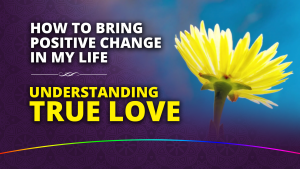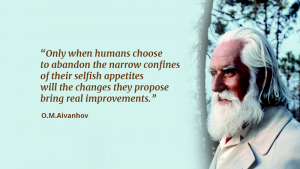Only a therapist who loves his neighbor is truly capable of doing his job well…
We tend to incresingly hear sentences that go along the lines of, “things aren’t working, we need new ethics. There’s a missing sense of duty, everyone is too busy minding their own business…” and so on.
So many bitter feelings, so many well-founded complaints. Those who work in medicine and related sciences know that, in their field, these are real and potentially devastating issues.
Generally, there is always one true origin to these issues: selfishness – or to be more correct, a “lack of love”, which gives birth to a scientific and medical sector that is driven by profit, the affirmation of one’s ego or hunger for power.
This in turn creates economic discomfort, poorly functioning services, poorly treated patients, along with medicines and therapies that serve to build “loyalty”, so as to create a need for more medicines and achieve higher profits. With that, come hospitals that struggle to work properly and a declining healthcare system used by political-underworld circles intent on drying the community of its economic resources.
This “lack of love” also weakens the function of therapy and takes strength away from science itself.
A spiritual approach to the issue might help us understand it better and may supply a solution.
What are we doing here, on Earth?
To grow as beings that are increasingly capable of loving in an active, practical and creative way.
But what do we mean by “love”?
“To love” means to bring about something good that does not yet exist. This is the key to everything.
On a basic level, the universe itself is born out of this very same dynamic: something beautiful and good was created, something that was not there before.
So it is that, in turn, we are called to gradually acquire our own lovingly creative faculties, starting from our immediate environment: our family, friends, our work, our relationships.
When we come to Earth, it doesn’t matter what job we have: what’s important is how we do it and how much unconditional love we put into it.
When we die, we don’t take our job as a nurse, a therapist, a scientist or a doctor along with us… we only bring what we have become whilst doing it. We will be left with a question: were we more lovingly creative? This is the true gold we will extract from a lifetime of experiences. Nothing else. And upon answering that question, we will start to build our path to the next life.
Only that which has been done with love and for love will remain forever etched in our spirit.
But that’s not all: when we pour our hearts into wanting to improve a patient’s situation (or that of the people who work in our team, or of those who could heal thanks to our discovery) we produce two other effects that have positive consequences on our actions:
1) As we anxiosuly search for something that can be truly useful, more attention is paid to both the details and the overall picture presented to us. As a result we end up noticing many more aspects that are often fundamental to a better understanding of the situation.
2) We “tune” ourselves to the same frequency of our creators in the spiritual world. As a response to our loving intentions, they in turn send us positive and useful inspiration.
We become intuitive, more intelligent, more capable of grasping that solution, that discovery which goes in the direction of love. We make ourselves an instrument of the divine love plan.
So what kind of ethics should be brought into science? The cold ethics of regulationd, of laws? Of respectability?
No, it wouldn’t be enough. It takes the warm and enlightened ethics of unconditional love, the capability of identifying oneself with those in need, and wanting their improvement with all your heart.
Science without love makes no sense, it’s devoid of true intelligence. It only gets you recognition, wealth, perhaps a notable career …this neither increases one’s awareness nor does it help others. At most, it can put food on the table and make you feel some pride… things that quickly return to dust after a few years.
Observing and listening to a person with love opens us up to a world of revelations, knowledge and intuitions.
A therapist or a scientist who truly loves, brings warmth and light everywhere. Through his increased humanity and a more radiant intelligence (and with the guidance of the Spiritual World) he/she is much more capable of bringing real improvement.
This is the future, in all aspects of life: to introduce the ethics of unconditional love.
And as for science, it will either be a science of love or it will no longer be science. One day there will be an abyss between scientists and therapists of the heart and those of their mind focused on personal interest.
Once, being cold and rational was the accepted way for a professional to be. But it was and is a serious mistake. Humanity needs professionals who are both prepared and full of love, and ready to pour it into every fold of their social mission… in all their daily actions, be they big or small.








